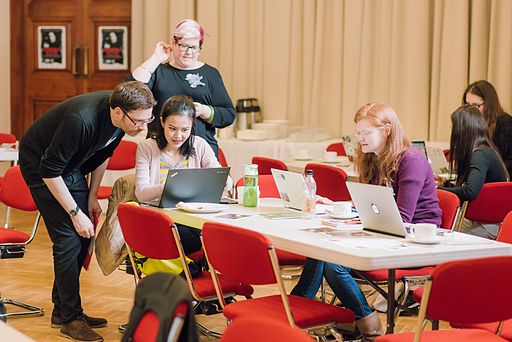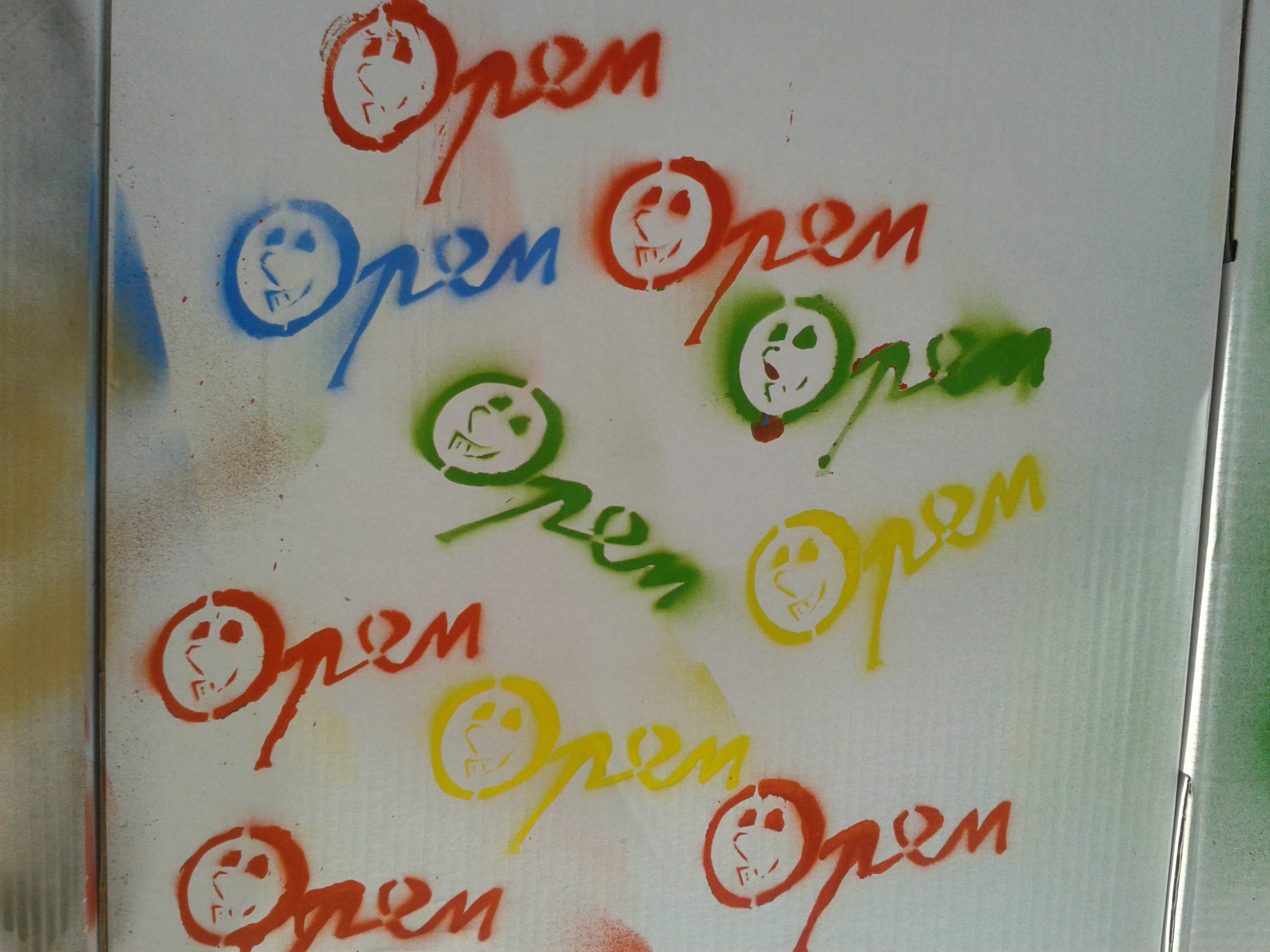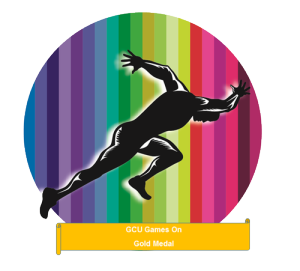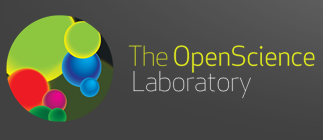“A fertile opportunity”
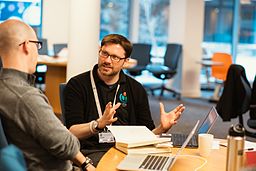
As a community moderated and created open knowledge platform Wikipedia depends on contributions from volunteers. As Ewan notes Wikipedia is only “…as good as the people who engage with it.” Wikimedian’s in Residence, such as Ewan, help facilitate contribution by “…engaging people with the practical skills of editing…” and improve digital and information literacy through focused use of the platform with colleagues. One format this work takes is via an “edit-a-thon” where groups spend time editing existing Wikipedia entries or adding new entries to Wikipedia around a specific theme.
Recent edit-a-thons at the University have focused on the Gothic, Architecture and Ada Lovelace. A wide range of staff and students from across the University and beyond have contributed to such events, which are often co-hosted. Recent blog posts by participants highlight the positive experience of participating in such events. See, for example Wikipedia Edit-a-thon and Mary Stewart [updated] and Modern Scottish Women Edit-a-thon hosted at the National Library of Scotland and National Galleries Scotland, respectively.
Female Wikipedia editors are still a minority [REF] and Ewan’s work has a particular remit to increase the participation and visibility of groups and persons underrepresented on Wikipedia. This includes increasing the number of biographies of women as part of the broader and highly successful WikiProject Women in Red project.
“… It’s not the Wild, Wild West… it’s a valid resource”
Arguably perceptions of Wikipedia have shifted since its inception in January 2001. Whilst scepticism around its use in academia still remains in some quarters, elsewhere its use is more accepted and innovative uses of Wikipedia for teaching are emerging. You can watch 12 educators talking about why and how to use Wikipedia in teaching in the recent Wikipedia in Education 1 of 12 Why do you teach Wikipedia? Similarly Wikimedia also has useful information on using Wikipedia for teaching and learning.
Moreover, specific Wikipedia initiatives are improving the platform for academics and researchers. Recent projects such as Signalling OA aim to highlight open access research cited on the platform, for example. Similarly WikiCite aims to make “…citations and referencing on Wikipedia much more consistent and much more useable... in terms of altmetrics and impact…” (REF)
By 2014 research by YouGov revealed that British people trust Wikipedia more than the news with 5% of UK adults admitting to plagiarising Wikipedia (REF). Similarly, shortly after in 2015, as Ewan noted, Nature published research revealing that Wikipedia was considered on a par with the Encyclopaedia Britannica (REF)
“Thinking about Wikipedia in a fresh and different way…”
However, even if public perceptions and use of Wikipedia have shifted, there is still room for improvement. For Ewan changing practices around the use of Wikipedia is essential and the platform should be used as a springboard to further exploration of a topic rather than as definitive source:
“…Wikipedia is not the end point for understanding knowledge and curating knowledge. It’s a beginning point. You shouldn’t cite Wikipedia, but you can use the citations at the bottom of the page, and you need to be able to critically evaluate them but at the same time if we can get good quality academic referencing in there, then there’s no reason why the content of that page can’t be used as a beginning point for understanding a subject.”
Similarly (potential) contributors also need to understand the processes that Wikipedia use to ensure an article is “fact checked information”. This approach Ewan described as being essential to combating resistance from academics or experts unwilling to contribute material as it might be modified or removed by a non-specialist. As Ewan explained:
“You have to understand where each side is coming from … If you’re talking about keeping hold of what’s good about Wikipedia, of the integrity of the project, there has to be an element of pushback. Wikipedia wants experts to be involved … but we also need [content]… to be neutrally written, objective, full with citations, denuded of any value judgments or peacock terms…”
What’s next for the residency?
Sustainability is central to developing “open culture” at the University and Ewan has been conducting train-the-trainer sessions
to increase the number of staff who can facilitate edit-a-thons.
Similarly the University would love to work with others to help roll
out the scheme to secondary schools and other organisations across the
city; as part of working toward the goal of Edinburgh as the City of
Information Literacy. As Ewan described it: “our ambitions at the moment
are limitless.” Pertinently, as Ewan remarked post-interview,
developing digital literacy and critical evaluation is particularly
important given the rise of ‘fake news’ and its role in recent events
(see Why Wiki Ed’s Work combats fake news – and how you can help for example).
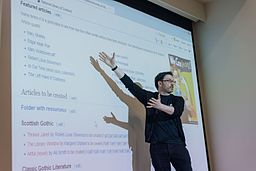
Increasing the number of potential facilitators will enable Ewan and future Wikimedians to focus on other types of engagement including increasing the number of Wikipedia education modules, supporting colleagues including librarians and special collection teams, releasing content and supporting researchers in contributing their datasets to Wikidata. Developing case studies is also a critical on-going component of Ewan’s work; documenting the initiative’s impact but also, as these are hosted on the project’s website, keeping the project “visible” for when colleagues are ready and have time to engage.
External engagement with people beyond the institution is an important feature of the Wikimedian residency and resonates with Ewan’s own idea of openness in terms of “sharing knowledge” beyond the academy. A Wikipedia conference is in development for 2017 as well as further edit-a-thons and co-hosting with organisations across the city as well as departments within the University.
Find out more:
- Follow Ewan on Twitter
- Read the Wikipedia entry on the The University of Edinburgh Wikimedian in Residence Project
- Watch Ewan at Repository Fringe 2016 on An introduction to Wikidata
- Read Seven years after Nature, pilot study compares Wikipedia favourably to other encyclopaedias in three languages
- Check out the Wikipedia guide to running an edit-a-thon
- Since this interview, in November 2016 University of Oxford announced its first Wikimedian in Residence
More on Wikipedia’s role in combating ‘fake news’:
- Wikipedia is fixing one of the Internet’s biggest flaws
- The most challenging job of the 2016 race: Editing the candidates’ Wikipedia pages
Picture credits:
- University of Edinburgh Spy Week Wikipedia edit-a-thon 16.jpg by Mihaela Bodlovic (http://www.aliceboreasphotography.com/) [CC BY-SA 4.0 (http://creativecommons.org/licenses/by-sa/4.0)], via Wikimedia Commons
- Edinburgh Gothic - Wikipedia editathon for Robert Lewis Stevenson Day 09.jpg by Mihaela Bodlovic (http://www.aliceboreasphotography.com) [CC BY-SA 4.0 (http://creativecommons.org/licenses/by-sa/4.0)], via Wikimedia Commons
- Edinburgh Gothic - Wikipedia editathon for Robert Lewis Stevenson Day 15.jpg by Mihaela Bodlovic (http://www.aliceboreasphotography.com) [CC BY-SA 4.0 (http://creativecommons.org/licenses/by-sa/4.0)], via Wikimedia Commons
- Article image Eurostemcell Wikipedia editathon 03.jpg by Stinglehammer (Own work) [CC0], via Wikimedia Commons
Originally published on 22 December 2016 - 1:11pm by Beck Pitt
